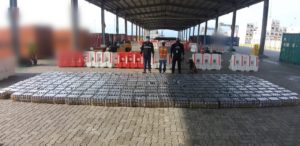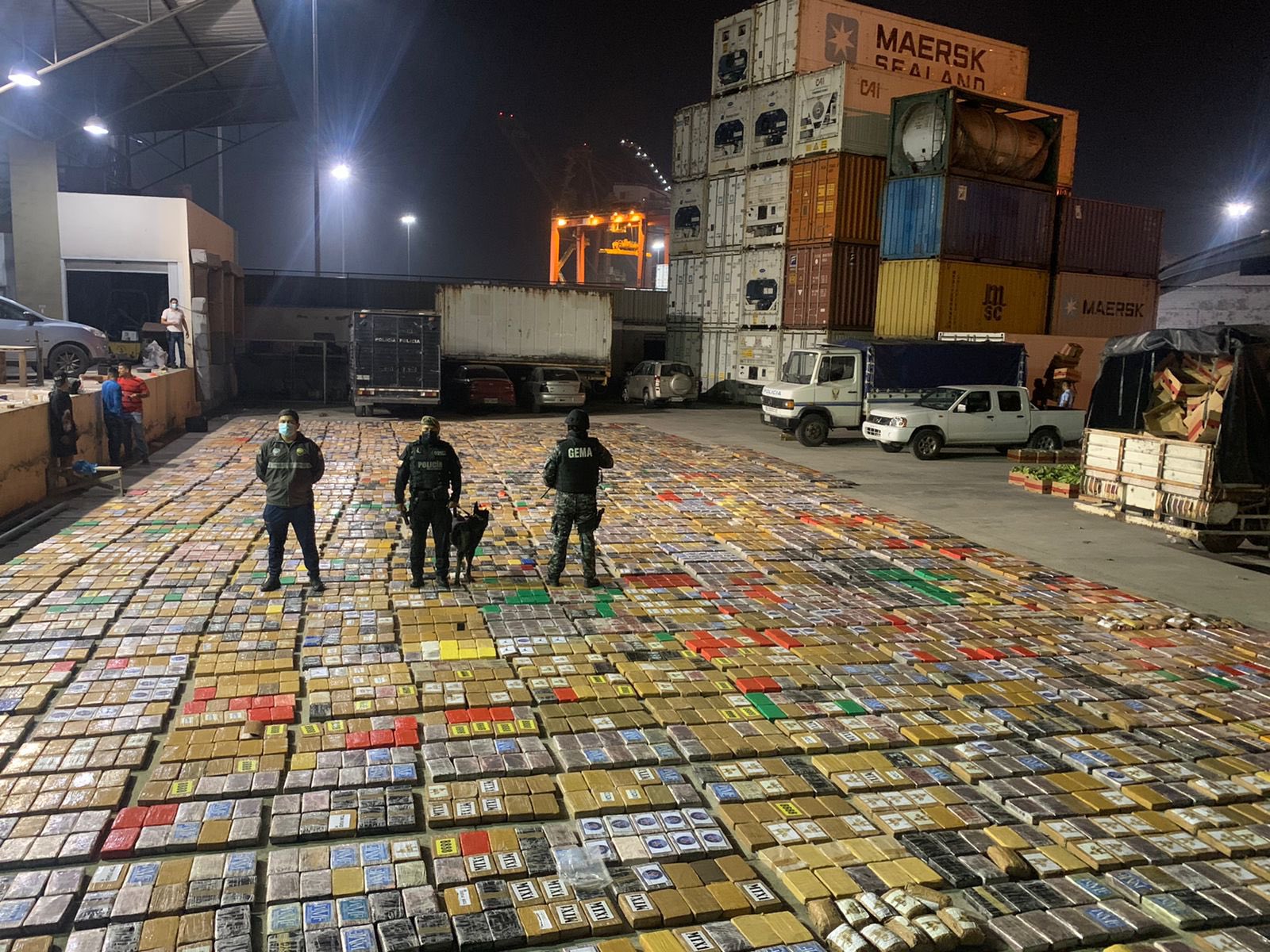Ecuador’s port terminals stimulate and diversify the economy, but the large number of containers and ships the country receives daily attract narcotrafficking networks that attempt to send shipments of drugs to Europe.
In 2021, 3,383 international trading vessels docked in Ecuadorian ports, including 1,764 vessels that entered ports in the city of Guayaquil, the Ecuadorian Undersecretariat of Ports and Maritime and Waterway Transportation told the Ecuadorian newspaper El Universo.
Criminal organizations use the containers on these ships, which generally carry goods such as tropical fruits, to send drugs to countries such as Germany, Belgium, the Netherlands, and Spain.

According to European Union Ambassador to Ecuador Charles-Michel Geurts, there has been an increase in the seizure of drugs hidden in Ecuadorian exports in the last three years, the Ecuadorian newspaper La Hora reported March 5, 2022.
As such, the fight against narcotrafficking in ports has become a priority for the Ecuadorian government. In October 2021, President Guillermo Lazo ordered “all cargo leaving Ecuador to go through an anti-narcotics scanning system,” as part of the National Security Plan. In addition, he requested tighter controls at temporary warehouses, ports, airports, and border crossings.
As a result, authorities have increased their effectiveness against criminal groups that contaminate containers. In 2021, authorities seized 54,843 kilograms of narcotics in ports, the National Anti-drug Investigation Directorate told the Ecuadorian newspaper Expreso. “From January to February 2022, drug seizures at ports increased by 73 percent, compared to the same period in the previous year,” Ecuadorian National Police (PNE, in Spanish) Lieutenant Colonel Christian Marín, head of the Port and Air Investigations Unit, said in an interview with the digital newspaper Ecuavisa.
As an example, the PNE seized 13,722 kg of cocaine from containers in four operations carried out in ports of Guayas province, February 14-March 5. The drugs were bound for ports in Germany, Belgium, and the Netherlands.
On February 14 alone, the PNE seized 6,992 kg of cocaine, which it detected in a banana shipment with the support of a detection dog.
There is still much to do in terms of port security, Marín said, “but we are going to increase inspections, both by the counternarcotics canine unit and the investigation unit,” he said.









